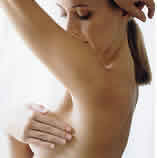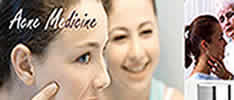 Article Date: 15 Feb 2008
Article Date: 15 Feb 2008
By Alexiz Malelo
Fear of cancer is tragic, cancer prevents people from taking the quick easy, inexpensive steps that can detect it early when it is most treatable, says Dr. Harmon Eyre, M.D., Chief of American Cancer Society.
But a lot of cancer is preventable and treatable. Scientists working for the World Cancer Research Fund (WCRF) from nine universities in four countries analyzed available information about cancer and published their findings in a report called Food, Nutrition, Physical Activity, and the Prevention of Cancer. The summary of the report was published in British Medical Journal by a professor in Oxford University.
The research has shown that even the advancement in technology and sciences cannot fully unlock the mystery behind cancer. Though the origins of cancer has been identified – a genetic mutation in cell’s DNA which causes the cell to reproduce rapidly and uncontrollably, there is still a lot of questions unanswered such as why some people are predisposed to cancer while others are not, and why does a cell would suddenly become uncontrollable and cause cancer.
Generally, the kind of lifestyle has tremendous impact to a person’s health which includes prevention of cancer.
Avoid eating more than you need.
Obesity is a major cause of cancers of the esophagus, colon and rectum, pancreas, breast, endometrium, and kidneys. Our body mass index should ideally lie between 21 and 23.
Eat a healthy diet
Red meat and processed meat are known to contribute in colorectal cancer. Research showed that red meat eaters have a 30% more chance to have colorectal cancer than to those who do not. It is recommended that we should eat not more than 300 grams of red or processed meat in a week.
Eat a lot of vegetables and fruits to help you prevent cancer. Researches have shown that we are less likely to develop cancer cells if we eat a lot of vegetables and fruits. Most fruits and vegetables contain enzymes, vitamins and minerals that help our body build resistance against most diseases including cancer. It is recommended that we eat five serving of vegetable per day and two servings of fruits per day.
Exercise
Quite apart from helping to lose weight, being fit seems to have an anti-cancer effect in itself. Researchers recommend 30 minutes of moderate physical exercise – like brisk walking – a day, and once we're fit, then 30 minutes of vigorous physical activity or 60 minutes of moderate exercise a day.
Avoid alcohol
Alcohol increases the risk for cancers of the mouth, pharynx, larynx, oesophagus, colon and rectum, and breast; and also causes cirrhosis, which raises the risk of liver cancer. Men shouldn't drink more than two standard drinks of alcohol a day and women no more than one a day.
Limit consumption of salt
Diets high in salt intake has been associated with stomach cancer. Avoid salty foods including cured and pickled meats and vegetables.
Take vitamin and mineral supplements in moderation
While most experts agree that vitamin and mineral supplementation is vital for a variety of illnesses and age-related problems and in the promotion of optimal physical and psychological health. Even so, everything that is taken too much may become toxic and may cause harm than good. The key is to take vitamins in moderation and the use of common sense. It would also be helpful that we consult our doctor for whatever vitamins and minerals that is best for us.
Breast feed
Mothers should breastfeed babies for the first six months: breastfeeding protects women against breast and other cancers.
Visit your doctor regularly
When all preventive measures have failed, early detection is vital for the treatment of cancer. Below is the American Cancer Society’s recommended cancer screening guidelines.
• Have a general cancer exam every three years if you are between 20 and 40 years of age. After 40, have a regular cancer screening every year.
• Colon and rectal cancer examination. Common for people 50 and above, and is the leading cause of cancer related deaths for nonsmokers.
1. Have a stool and rectal examination every year, along with sigmoidoscopy- a lower colon and rectal examination every 5 years.
2. Have a colonoscopy and internal exam of your entire colon every 5 to 10 years.
3. Have a double contrast barium enema x-ray exam of your colon every 5 to 10 years.• Breast cancer examination. Breast cancer self-examination is recommended for women ages 20 to 39 every month. For women ages 40 and older, aside from regular monthly self-examination, a mammogram examination is also recommended annually. It is best to visit your gynecologist every year.
• Prostate cancer examination. A once a year rectal examination is recommended for men age 50 and above. An annual blood test against prostate-specific antigen (PSA) is also recommended. Men who are high-risk to develop prostate cancer are advised to have the test early at the age of 40.
• Uterine cancer examination. Consult with your doctor about possible examination using endometrial biopsy at menopause. This is mostly true for those who are at high-risk.
• Cervical cancer examination. All women who have been sexually active or who are age 18 and older should have an annual Pap test and pelvic exam.


